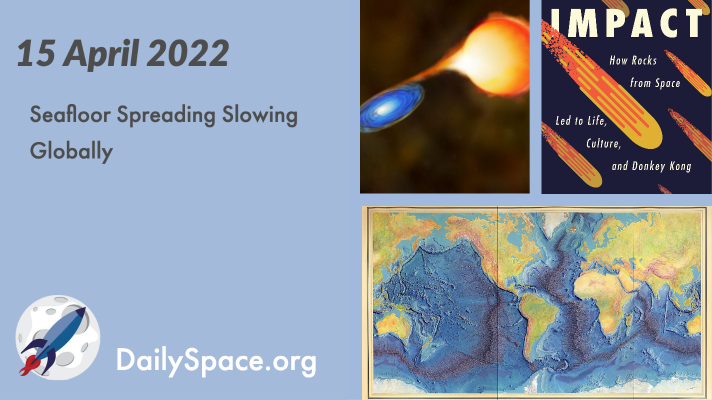
Apr 18, 2022 | Book Club, Climate Change, Daily Space, Earth, Review, Stars, Supernovae
An analysis of the relative movements of 18 tectonic ridges over the past 19 million years finds that the rate of seafloor spreading has dropped by about 40% on average globally. Plus, stars are getting naked, climate change is heating things up, and we review “Impact: How Rocks from Space Led to Life, Culture, and Donkey Kong” by Greg Brennecka.
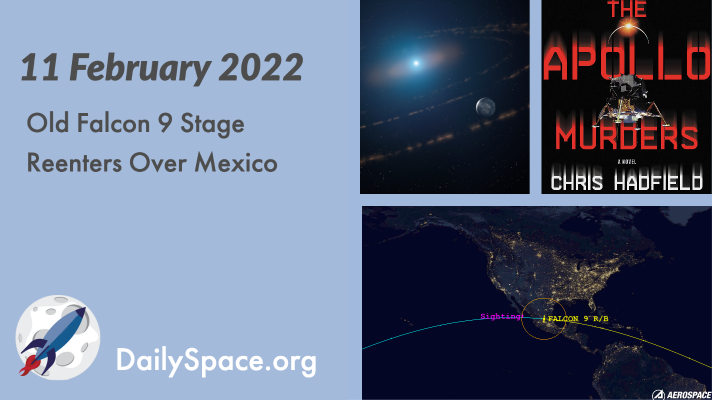
Feb 14, 2022 | Asteroids, Book Club, Daily Space, Exoplanets, JWST, Review, Rockets, Soyuz, Spacecraft, SpaceX, White Dwarfs
The second stage of a Falcon 9 rocket launched in 2017 re-entered the atmosphere over Mexico, breaking up and creating a show of fiery lights in the sky. Plus, dead stars with possibly living planets, more on moon formation, more launches, more launch failures, and a review of “The Apollo Murders” by Chris Hadfield.
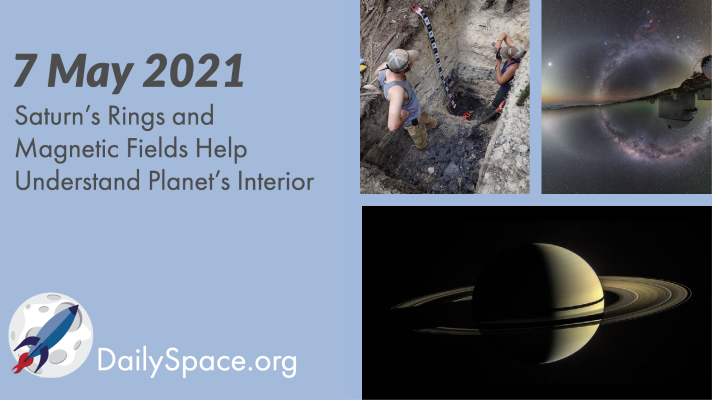
May 10, 2021 | Book Club, Cassini, Earth, Neutron Stars / Pulsars, Physics, Saturn
Two new studies used data from Cassini’s Grand Finale observations of Saturn and found that the magnetic fields and a wave in the rings provide insight into the core structure and composition of the gas giant. Plus, cosmic rays, how Mayans shaped the Earth, and a review of books by Charles C. Mann.
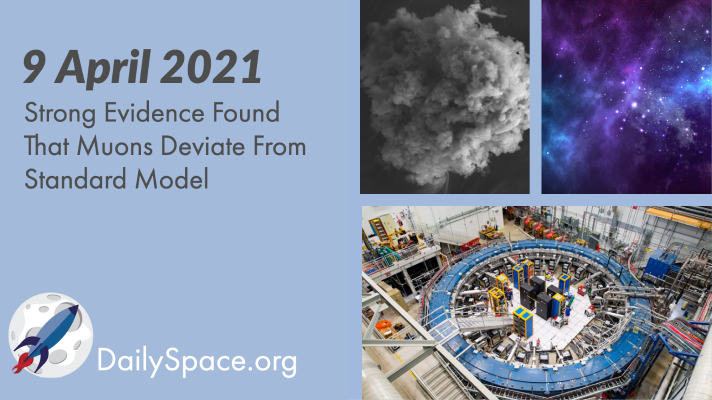
Apr 15, 2021 | Asteroids, Book Club, Cosmology, Curiosity, Daily Space, Earth, ESA, Mars, Physics
Fermilab released the first results of their Muon g-2 experiment this week, and the fundamental particles don’t behave as predicted by the Standard Model of Particle Physics. Plus, dust, more dust, Martian water (again), and a review of Packing for Mars by Mary Roach.
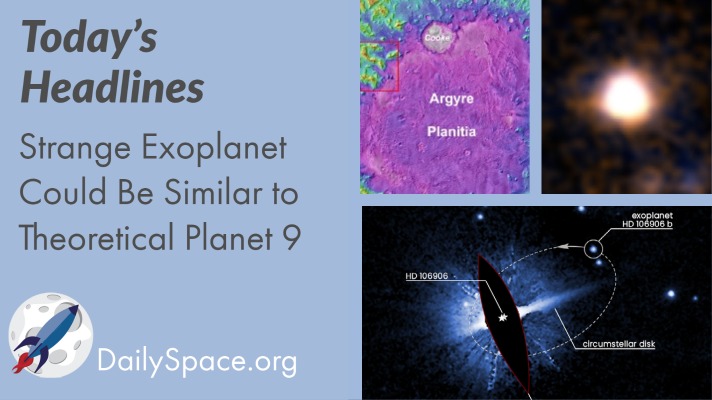
Dec 16, 2020 | Asteroids, Astrobiology, Book Club, Daily Space, Exoplanets, Galaxies, Guest Interview, JAXA, Jupiter, Mars, Our Solar System, Planets, Science, Sky Watching, Uranus
HD 106906 b is an exoplanet 336 light-years away, 11 times the size of Jupiter, and possibly an analog of our own not-yet-discovered Planet 9. Plus, a large body of water ice has been discovered on Mars, and we interview lead author Dan Berman of the Planetary Science Institute. Also included, stories on Jupiter, Uranus’s moons, a young galaxy, and how space weather impacts habitability.
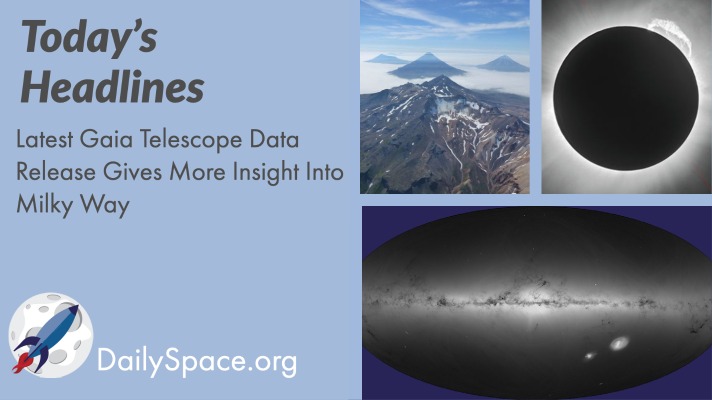
Dec 8, 2020 | Asteroids, Book Club, Earth, ESA, Milky Way, Planetary Nebulae, Science, Stars
The release of the Gaia space telescope’s Early Data Release 3 has paved the way for a 3D map of the Milky Way, a glimpse at its history, and the acceleration of our own solar system. Plus, Alaskan volcanoes, the Stingray Nebula fades, and yes, that really was a Centaur rocket booster captured by the Earth. And we announce our first CosmoQuest Book Club selection!








 We record most shows live, on Twitch. Follow us today to get alerts when we go live.
We record most shows live, on Twitch. Follow us today to get alerts when we go live.